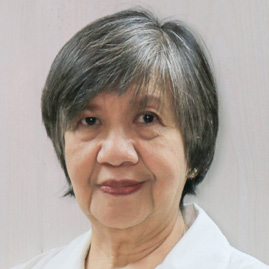From Informed Individuals to Informed Communities
The work of journalists enables separate and disparate publics to share in a common flow of information and ideas. The business of news – a system of gathering information, checking out sources, and verifying what they say – has thus earned the media an important place in public life.
Advances in media technology have multiplied sources of news and commentary once produced mainly by established news organizations. The press, where trained journalists work, now makes up only part of a huge and complex communications system, disseminating news in countless formats. Today, everyone can be a reporter or commentator and create a platform for the discussion of all kinds of issues and interests, including government and politics.
This phenomena has challenged the integrity of information itself and our understanding of an “informed public”. The 2017 Edelman Trust barometer highlights a marked difference in trust levels among the informed public and mass populations. The press may no longer be the dominant force in shaping information, but the global trust crisis involves the press and calls journalists to assume more responsibility in stemming the crisis of trust in institutions of government, business and media.
Democratization has strengthened the exercise of the right to know. Freedom of Information (FOI) legislation has eased the reach of reporters to official documents as they search for evidence to support investigative journalism. Open Data reforms have unleashed an unprecedented amount of data into the public domain. The movement toward transparency and accountability has gained momentum even in the private sector as business leaders take up initiatives to promote corporate integrity.
These reforms, revolutionary as they have been, present a unique challenge to the press. Universal access to data and information has diminished the primacy of the established media as news providers by giving the same advantage to ordinary individuals and non-media NGOs. It has dislodged the press from its assigned function: informing citizens so that they can participate in public affairs, empowering ordinary people to check budget allocations, claim services, question the lack or lapses in delivery, hold elected officials to account. The press must get back to this essential task at hand – and do it with a commitment to breaking media echo chambers, presenting opposing viewpoints and provoking healthy debate and discussion among different parts of society – with the goal of not only informing individuals, but entire communities.
Journalists must bring professional skepticism to the task, testing datasets for quality and timeliness. This requires newsrooms to develop new levels of skills and knowledge about the different fields from which these data are drawn.
Journalistic efforts using open data across borders will grow, with investigative teams forming international partnerships. But even in the more highly developed news ecosystems, the use of government databases engage only those specially trained for this kind of reporting. Analyzing, visualizing and relating data with information gathered from other sources is a demanding and rigorous process that only a few are inclined to undertake.
And yet, it would be a waste of opportunity and resource not to develop the skill necessary to use “big information” in reporting. Editors today must watch closely to see which stories can be drawn from or be reinforced by big data analytics. They see the day-to-day flow of stories across the different news sections they supervise. These big process stories need to engage those assigned to different “beats” as their diverse perspectives can make findings more meaningful and relevant to the public.
This is where the newsroom might outshine even the most dedicated citizen journalist working individually on the Internet. The editorial process is a collective effort, creating an environment in which a community can work together – sifting through and sorting out, culling the “news” from the mass of information. It is the work of journalists to surface what is relevant, and make this interesting enough to engage and involve ordinary citizens in the business of government.
 Melinda Quintos de Jesus
Melinda Quintos de Jesus
Executive Director, Center for Media Freedom and Responsibility
Get social and spread the word:
 Melinda Quintos de Jesus calls on the press to maintain the integrity of information & help #RenewTrust http://bit.ly/2y01pMe
Melinda Quintos de Jesus calls on the press to maintain the integrity of information & help #RenewTrust http://bit.ly/2y01pMe
 Melinda Quintos de Jesus says journalists have a responsibility to #RenewTrust by informing citizens & communities http://bit.ly/2y01pMe
Melinda Quintos de Jesus says journalists have a responsibility to #RenewTrust by informing citizens & communities http://bit.ly/2y01pMe
